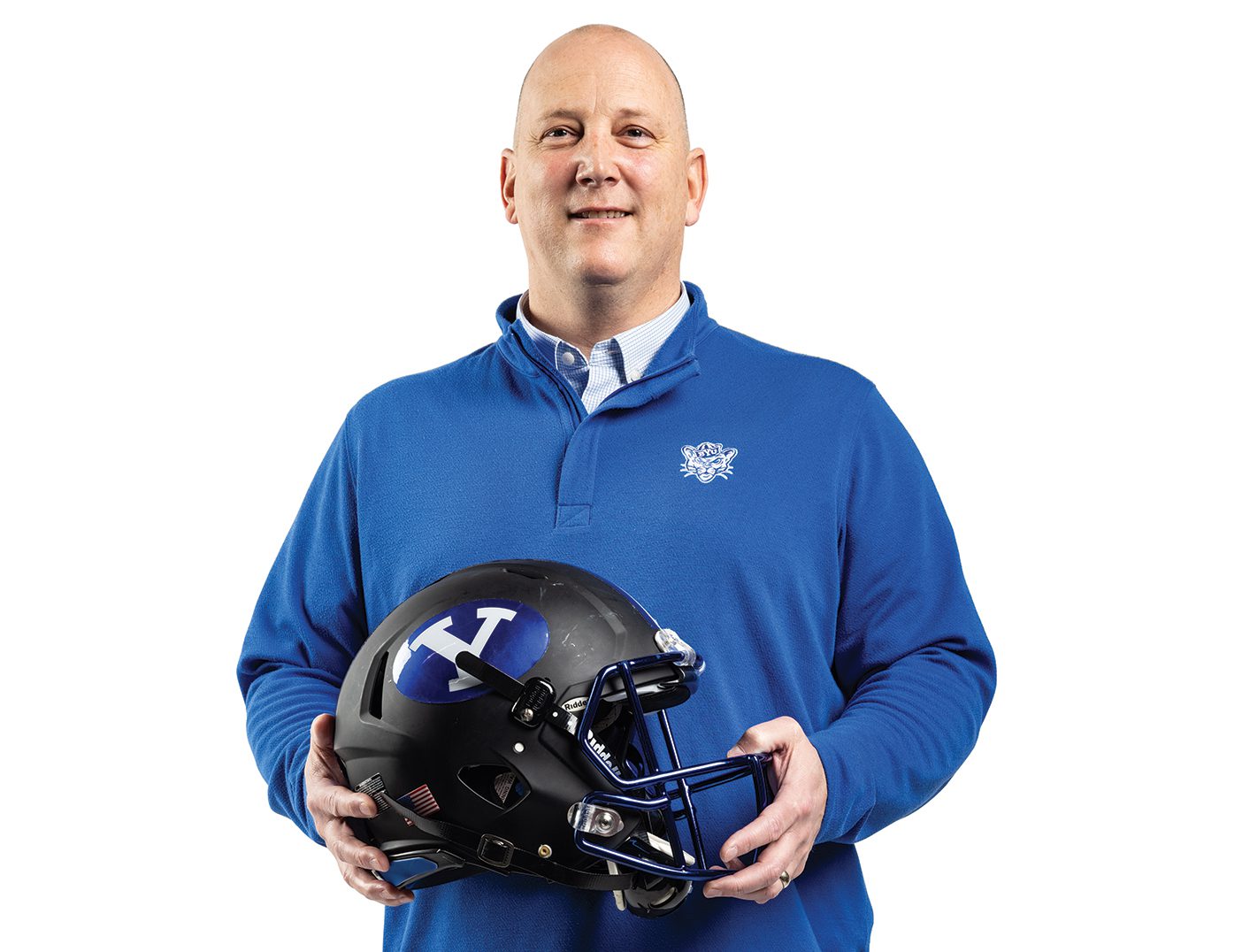
Darren E. Campbell (BA ’93) is BYU’s head doctor—in two ways: he leads the physicians supporting Cougar athletics, and he’s an expert in concussion treatment and prevention.
At the Air Force Academy, Campbell’s concussion protocols and clinic drew national attention, including from the US president and Air Force surgeon general. His insights have informed the CARE Consortium, a research collaboration with the Department of Defense and the NCAA. Campbell has since brought his expertise to BYU athletes and the neighboring community.
How has concussion treatment changed over the past decade?
A: Our CARE Consortium research on football players refined what it means to have a concussion and the right ways to treat it. For example, we used to tell injured players, “Go and sit in a dark room and come out to play when you feel better.” That’s absolutely incorrect. You have to find balance in gradually returning to full activity. The data shows that new injury after the brain heals results in long-term problems. The average recovery time for an athlete is two weeks.
What still needs to change?
A: Being tough and pushing through pain is respected, so encouraging athletes not to hide an injury is huge. CARE research found that when a football player delays reporting a concussion even one quarter in a game, recovery time slows down by about three days. The culture is improving, but we need to get head injuries treated without “toughness” getting in the way.
What is being done to make football safer?
A: Advances in helmets and other equipment have helped, and so have changes in tackling technique. From little league to the NFL, we now teach “heads-up” tackling and penalize dangerous tackles that use the head as a weapon. The science shows that small head injuries build up over a game or practice, meaning that even a small hit can cause a concussion. We encourage balancing high-contact games with practices that build skills with less contact. And research is still ongoing—the BYU football team is participating in a study that uses sensors in players’ mouthpieces to monitor the forces their heads experience during play.
WEB Learn the signs of a concussion on the CDC’s website.













